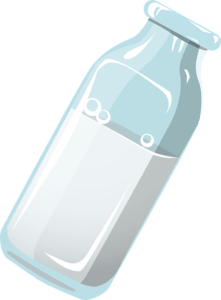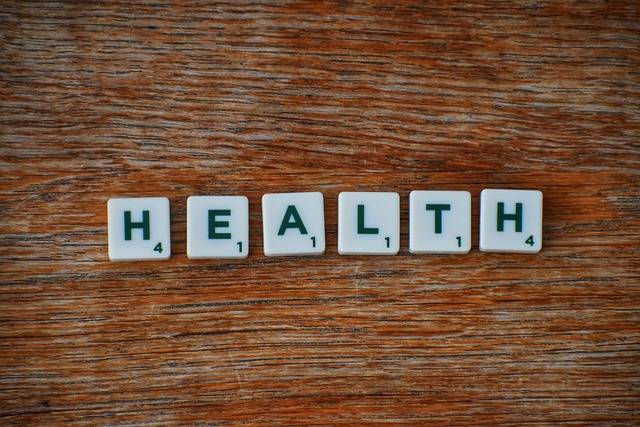Discover essential pregnancy nutrition! Explore what to eat during pregnancy for a healthy journey. Optimize your diet for you and your baby.
During pregnancy, maintaining a well-balanced and nutritious diet is very important for the health of the mother and the optimal development of the growing fetus. A varied and nutritious diet is essential to ensure that the body receives adequate vitamins, minerals and other essential nutrients. Important elements of a healthy pregnancy diet include a variety of fruits and vegetables, whole grains, lean protein, and dairy products. Meanwhile, folic acid, iron, calcium and omega-3 fatty acids are particularly important. Pregnant women should also take care to stay hydrated and manage their weight according to recommended guidelines. It is advisable to consult with a health care provider to tailor dietary recommendations to individual needs and to address any specific concerns or conditions. Making informed and healthy food choices during pregnancy not only promotes the well-being of both mother and baby, but also lays the foundation for a healthy start in life.
Folate and Folic Acid:
Folate, a B vitamin, is an important nutrient during pregnancy because it plays an important role in the early development of the neural tube, which eventually forms the baby’s brain and spinal cord. Adequate intake of folate helps prevent neural tube defects and other birth abnormalities. Although folate is found naturally in a variety of foods, including leafy green vegetables, beans, citrus fruits, and fortified cereals, it is often recommended that pregnant women take a prenatal vitamin containing folic acid. Folic acid is the synthetic form of folate, and is more easily absorbed by the body. The recommended daily intake of folate during pregnancy is about 600-800 micrograms, and women are generally advised to start taking supplements before they become pregnant. Adding folate-rich foods to the diet along with prenatal supplementation helps ensure that the developing fetus receives enough nutrients for proper neurological development, reducing the risk of neural tube defects. should be reduced and healthy pregnancies should be promoted.
Pregnant women are often advised to eat foods rich in folate, such as leafy green vegetables (spinach, kale), legumes (beans, lentils) and fortified cereals. Folic acid supplements are also commonly recommended before and during pregnancy.
Importance of Iron:
Iron plays an important and multifaceted role during pregnancy, making it an essential nutrient for the health of both the mother and the developing fetus. One of its primary functions is the production of hemoglobin, the protein in red blood cells that is responsible for carrying oxygen from the lungs to the rest of the body. During pregnancy, the body’s blood volume increases to meet the growing needs of the placenta and developing baby, creating a greater demand for iron. Inadequate iron levels can result in iron deficiency anemia, fatigue, weakness, and a condition associated with an increased risk of preterm birth and low birth weight.
Iron is also essential for proper growth and overall development of the baby’s brain. It is essential for the synthesis of neurotransmitters and the formation of myelin, a substance that insulates nerve fibers. Additionally, iron supports the immune system, helping the body protect against infection, which is especially important during pregnancy when the immune system undergoes changes to protect the developing fetus.
Pregnant women are often recommended to increase their iron intake, with the recommended daily allowance being 27 mg. Iron-rich foods such as lean meats, poultry, fish, beans, lentils, tofu, and fortified cereals are encouraged. In some cases, health care providers may prescribe iron supplements to ensure that nutritional needs are met. However, it is important for pregnant women to consult with their health care providers to determine an appropriate iron supplement, as excessive iron intake may have adverse effects. Ensuring an adequate supply of iron during pregnancy is important for the well-being of both the expectant mother and the developing baby.
Importance of Calcium:
Calcium is an important mineral during pregnancy, which plays an important role in the development of the baby’s bones, teeth and overall skeletal system. As the fetus grows, it relies on the maternal supply of calcium to build a strong and healthy skeletal structure. If the mother’s calcium intake is insufficient, the baby will extract calcium from her bones, possibly leading to the mother’s bone loss and an increased risk of osteoporosis later in life. Additionally, calcium is essential for the proper functioning of a baby’s heart, muscles and nervous system.
Maintaining adequate calcium levels during pregnancy is also important to prevent conditions such as preeclampsia, a potentially serious complication characterized by high blood pressure and damage to organs such as the liver and kidneys. Adequate calcium intake is associated with a lower risk of developing preeclampsia.
The recommended daily intake of calcium during pregnancy is around 1000-1300 mg, depending on the expectant mother’s age and individual needs. Dairy products, such as milk, cheese, and yogurt, are rich sources of calcium. Additionally, leafy green vegetables, fortified plant-based milk alternatives, and calcium supplements recommended by health care providers can help meet the recommended intake.
It is important for pregnant women to prioritize their calcium intake, not only for the immediate needs of the developing fetus but also for their own long-term bone health. Regular consultation with health care providers and following dietary recommendations ensures a healthy balance of calcium, promoting the well-being of both the mother and the growing baby during pregnancy.
Importance of Protein:
Proteins play an important and multifaceted role during pregnancy, contributing to the growth and development of both the mother and the developing fetus. Protein plays an important role in the formation of new tissues, including the baby’s organs, muscles and immune system. Adequate protein intake is essential for the synthesis of enzymes and hormones that regulate various bodily processes, contributing to the overall health of both the expectant mother and the growing baby.
During pregnancy, the body undergoes significant changes, including an increase in blood volume and the growth of the placenta. Protein is essential to support these physiological changes, as it is involved in the production of red blood cells and maintaining proper fluid balance. Additionally, protein plays an important role in supporting the expansion of the mother’s blood vessels, ensuring efficient nutrition and oxygen delivery to the developing fetus.
Protein intake is especially important in the second and third trimesters when the baby experiences rapid growth and development. Inadequate protein during this critical period can lead to complications such as low birth weight and impaired fetal growth.
Although exact protein needs may vary based on factors such as maternal weight and activity level, a general guideline recommends an additional 25 grams of protein per day during pregnancy. Good sources of protein include lean meats, poultry, fish, eggs, dairy products, beans, nuts and seeds. Including a variety of these protein-rich foods in the diet helps ensure that the mother receives a diverse range of essential amino acids, which are the building blocks of protein.
Consultation with health care providers is essential to determine individual protein needs and make informed dietary choices to ensure a healthy pregnancy. Adequate protein intake not only helps in the growth of the baby but also in the overall well-being of the expectant mother during pregnancy.
Importance of Omega-3 Fatty Acids:
Omega-3 fatty acids are essential nutrients of utmost importance during pregnancy, influencing both the health of the expectant mother and the optimal development of the growing fetus. The two main types of omega-3 fatty acids, eicosapentaenoic acid (EPA) and docosahexaenoic acid (DHA), are especially important during this period. These fatty acids are essential components of cell membranes, contributing to the structure and function of cells throughout the body.
An important role of omega-3 fatty acids in pregnancy is in the development of the baby’s brain and eyes. DHA, in particular, is an important component of the brain and retina, and an adequate supply is essential for the formation of the central nervous system. Adequate omega-3 intake during pregnancy is associated with better cognitive function in infants.
Omega-3 fatty acids also play a role in reducing the risk of preterm birth and supporting a healthy birth weight. Additionally, they contribute to the modulation of inflammation and immune responses, promoting a balanced immune system for both the mother and the developing fetus.
Although the body can produce small amounts of EPA and DHA, it is important to obtain these fatty acids from dietary sources during pregnancy. Fatty fish such as salmon, mackerel and trout are rich sources of omega-3s, as are certain types of algae and fortified foods. However, due to concerns about the mercury content of certain fish, pregnant women are often advised to be selective in their choices and consider omega-3 supplements.
The recommended daily intake of omega-3 fatty acids during pregnancy varies, but a general guideline recommends about 200-300 milligrams of DHA per day. Pregnant women should consult with health care providers to determine individual needs and consider appropriate dietary adjustments or supplements to ensure a balanced intake of omega-3 fatty acids. Including these essential nutrients in the maternal diet contributes to the overall health and well-being of both mother and developing baby, promoting optimal growth and development during pregnancy.
Importance of hydration:
Hydration is of utmost importance during pregnancy, playing an important role in the well-being of both the expectant mother and the developing fetus. As the body undergoes various physiological changes to accommodate the growing baby, the demand for fluids increases significantly. Adequate hydration is essential to maintain adequate blood volume, support the transport of nutrients across the placenta, and ensure optimal oxygen delivery to the baby.
Adequate hydration also helps prevent common pregnancy ailments such as constipation and urinary tract infections. Consuming plenty of water supports the digestive system, helping to soften stools and relieve constipation, a common concern during pregnancy. Additionally, staying well hydrated reduces the risk of urinary tract infections by flushing out bacteria from the urinary tract.
Hydration is very important to regulate body temperature, especially since pregnant women are prone to overheating. It helps eliminate excess heat through sweat, preventing discomfort and potential complications associated with high body temperature.
Additionally, adequate fluid intake contributes to the amniotic fluid surrounding the baby, providing a protective cushion and supporting fetal growth. Dehydration during pregnancy can potentially lead to a decrease in amniotic fluid levels, which can have effects on the baby’s growth and development.
Recommended daily fluid intake for pregnant women varies, but a general guideline suggests about 8-10 cups (64-80 ounces) of water per day, or more if there is increased physical activity or hot weather such as There are factors. However, individual hydration needs may vary based on factors such as body weight, activity level, and overall health.
Pregnant women should pay attention to their body’s cues for thirst and ensure a constant intake of water throughout the day. Limiting caffeinated and sugary drinks is advised, as excessive consumption of these can lead to dehydration. Consultation with health care providers is important to determine specific hydration needs and address any concerns about fluid intake to promote a healthy pregnancy and optimal baby development.
Consult a healthcare professional:
Consultation with a health care professional during pregnancy is of great importance as it plays a central role in ensuring the well-being of both the expectant mother and the developing fetus. Regular prenatal care allows health care providers to monitor the progress of the pregnancy, identify and manage any potential complications early, and provide guidance on maintaining a healthy lifestyle. Gives
Health care professionals, including obstetricians, midwives, and other specialty providers, have the expertise to assess the specific needs of each pregnant woman based on factors such as medical history, age, and pre-existing health conditions. Is. These professionals can offer personalized advice on nutrition, exercise, and overall lifestyle choices tailored to the expectant mother’s individual needs.
Monitoring the baby’s growth and development through ultrasounds, blood tests, and other diagnostic measures is an important aspect of prenatal care. Health care providers can spot any signs of potential problems and take preventive measures or recommend appropriate interventions to ensure optimal health for both mother and baby.
Health care professionals also play an important role in managing and managing pregnancy-related complications and complications. They can provide guidance on how to manage symptoms such as nausea, back pain, and swelling, and if more serious complications develop, such as gestational diabetes or preeclampsia.
Additionally, regular consultations with health care providers allow pregnant women to discuss their concerns, ask questions, and receive valuable information about the various stages of pregnancy, labor, and postpartum care. Provides opportunity. Establishing open communication fosters a trusting relationship between the expectant mother and her health care team, creating a supportive environment for dealing with any emotional or psychological aspects of pregnancy.
In cases where medical intervention or medication is necessary, health care professionals can make informed decisions that balance the benefits and potential risks for both mother and baby. This collaboration ensures that any necessary treatment is done with the utmost consideration for the well-being of both patients.
Overall, consulting a health care professional throughout pregnancy is an essential component of responsible and proactive maternal care. It promotes a healthy pregnancy, reduces the risk of complications, and contributes to a positive and well-supported childbirth experience. Expectant mothers are encouraged to attend all scheduled prenatal appointments, to actively engage in discussions with their health care providers, and to promote health care for both themselves and their babies. Follow the recommended guidelines to improve results.
Conclusion:
Finally, maintaining a balanced and nutritious diet during pregnancy is crucial for optimal health and development of both the expectant mother and the growing fetus. Careful selection of foods rich in essential nutrients such as folate, iron, calcium, protein and omega-3 fatty acids helps prevent birth defects, supports proper fetal development, and reduces the risk of complications. A varied intake of fruits, vegetables, whole grains, lean proteins, and dairy products, along with appropriate supplements recommended by health care professionals, forms the basis of a healthy pregnancy.
Remember, eating a balanced and nutritious diet during pregnancy is key to your own health and your baby’s development. Listen to your body, prioritize variety and moderation, and seek professional advice when needed. Wishing you a healthy and delicious pregnancy journey!
Frequently asked questions about what to eat during pregnancy:
Q: Do I need to “eat for two” during pregnancy?
A: Absolutely not! Aim for a small increase in calorie intake (about 300 extra calories per day), focusing on nutrient-dense foods rather than empty calories.
Q: What are the most important nutrients during pregnancy?
A: You need adequate amounts of protein, calcium, folic acid, iron and choline for your baby’s growth. Whole grains, fruits, vegetables, lean protein sources, and dairy products are good choices.
Q: What should I avoid during pregnancy?
A: Unpasteurized dairy products, raw or undercooked meat and seafood, unwashed fruits and vegetables, alcohol, high caffeine, and processed foods high in sugar and unhealthy fats are best avoided. .
Q: How much protein do I need?
A: Aim for about 75 grams of protein per day. Choose lean meats, fish, eggs, beans, lentils, nuts and seeds.
Q: What about fruits and vegetables?
A: Aim for at least 5 servings per day for a variety of vitamins, minerals and fiber. Choose colorful options for maximum nutrients.
Q: What about dairy?
A: Calcium is very important for bone growth. Choose low-fat or fat-free milk, yogurt, and cheese to ensure adequate intake.
Q: Can I eat fish during pregnancy?
A: Yes, but avoid high mercury fish like king mackerel, swordfish and marlin. Choose low-mercury choices such as salmon, tuna and cod.
Q: How much water should I drink?
A: Aim for 8-10 glasses per day to stay hydrated and promote overall health.
Q: How can I deal with pregnancy cravings?
A: Join Moderation! Satisfy cravings with healthy alternatives like dark chocolate, frozen yogurt, or fruit smoothies.
Q: What if I have nausea or morning sickness?
A: Eat small, frequent meals and choose soft, easily digestible foods such as crackers, toast, or ginger. Consult your doctor for dietary suggestions and anti-nausea medication if needed.
Q: Do I need to take prenatal vitamins?
A: Yes! Prenatal vitamins provide essential nutrients like folic acid, iron and choline that can be difficult to obtain through diet alone.
Q: Where can I get more information about healthy pregnancy eating?
A: The American College of Obstetricians and Gynecologists (ACOG), the Academy of Nutrition and Dietetics, and your doctor are valuable resources for personalized guidance.
Also Read : what is depression










